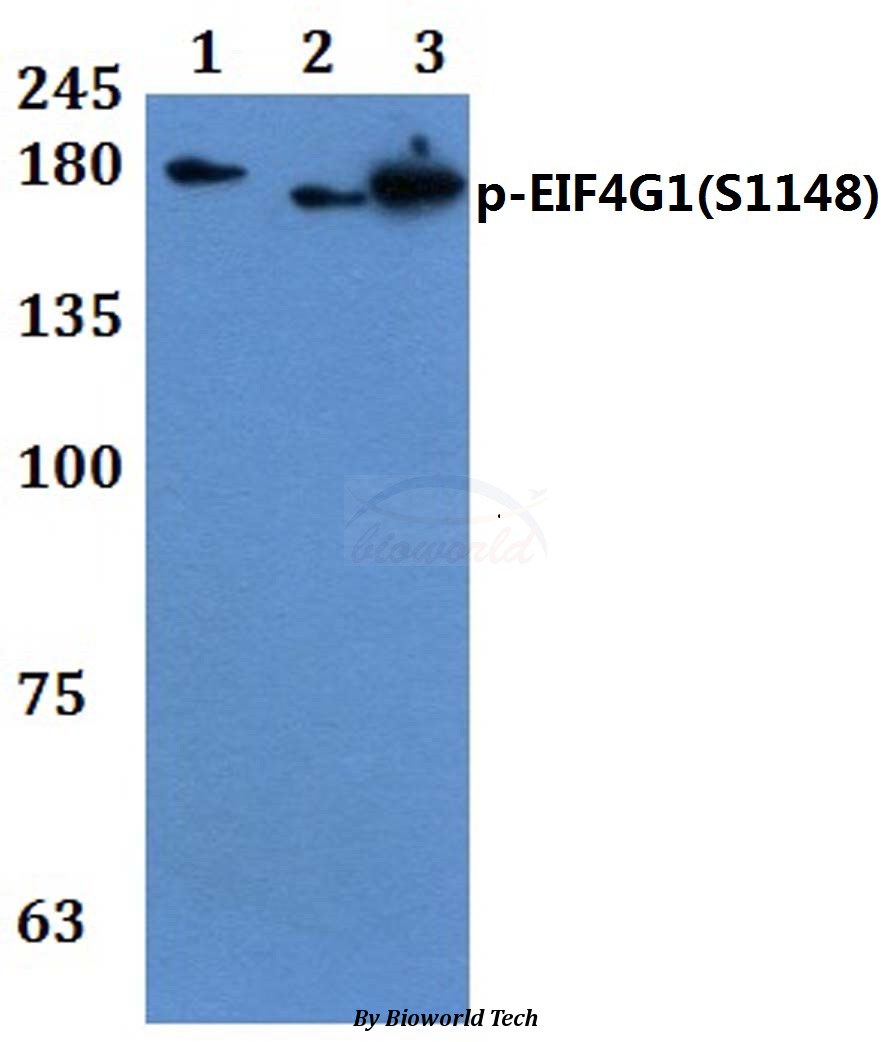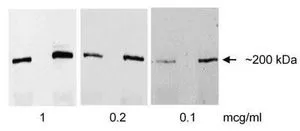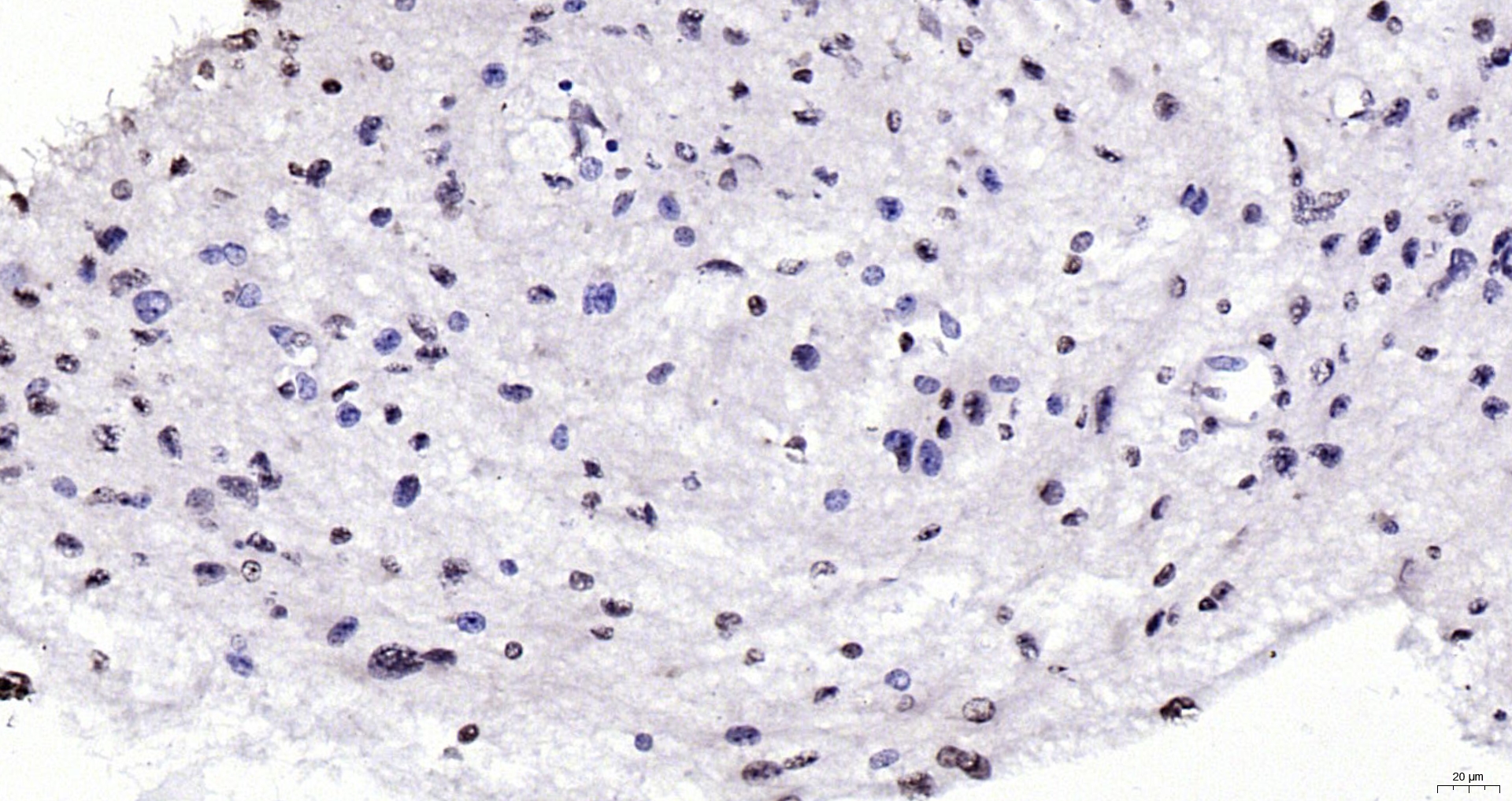anti-eIF4G phospho (Ser1232) antibody
ARG51815
ApplicationsWestern Blot, ImmunoHistoChemistry, ImmunoHistoChemistry Paraffin
Product group Antibodies
ReactivityHuman
TargetEIF4G1
Overview
- SupplierArigo Biolaboratories
- Product Nameanti-eIF4G phospho (Ser1232) antibody
- Delivery Days Customer23
- ApplicationsWestern Blot, ImmunoHistoChemistry, ImmunoHistoChemistry Paraffin
- CertificationResearch Use Only
- ClonalityPolyclonal
- Concentration1 mg/ml
- ConjugateUnconjugated
- Gene ID1981
- Target nameEIF4G1
- Target descriptioneukaryotic translation initiation factor 4 gamma 1
- Target synonymsEIF-4G1, EIF4F, EIF4G, EIF4GI, P220, PARK18, eukaryotic translation initiation factor 4 gamma 1, EIF4-gamma, eIF-4-gamma 1, eucaryotic translation initiation factor 4G
- HostRabbit
- IsotypeIgG
- Scientific DescriptioneIF4F is a multi-subunit complex, the composition of which varies with external and internal environmental conditions. It is composed of at least EIF4A, EIF4E and EIF4G1/EIF4G3. Interacts with eIF3, mutually exclusive with EIF4A1 or EIFA2, EIF4E and through its N-terminus with PAPBC1. Interacts through its C-terminus with the serine/threonine kinases MKNK1, and with MKNK2. Appears to act as a scaffold protein, holding these enzymes in place to phosphorylate EIF4E. Non-phosphorylated EIF4EBP1 competes with EIF4G1/EIF4G3 to interact with EIF4E; insulin stimulated MAP-kinase (MAPK1 and MAPK3) phosphorylation of EIF4EBP1 causes dissociation of the complex allowing EIF4G1/EIF4G3 to bind and consequent initiation of translation. EIF4G1/EIF4G3 interacts with PABPC1 to bring about circularization of the mRNA. Rapamycin can attenuate insulin stimulation mediated by FKBPs. Interacts with EIF4E3. Interacts with MIF4GD. Interacts with rotavirus A NSP3; in this interaction, NSP3 takes the place of PABPC1 thereby inducing shutoff of host protein synthesis
- ReactivityHuman
- Storage Instruction-20°C
- UNSPSC12352203






